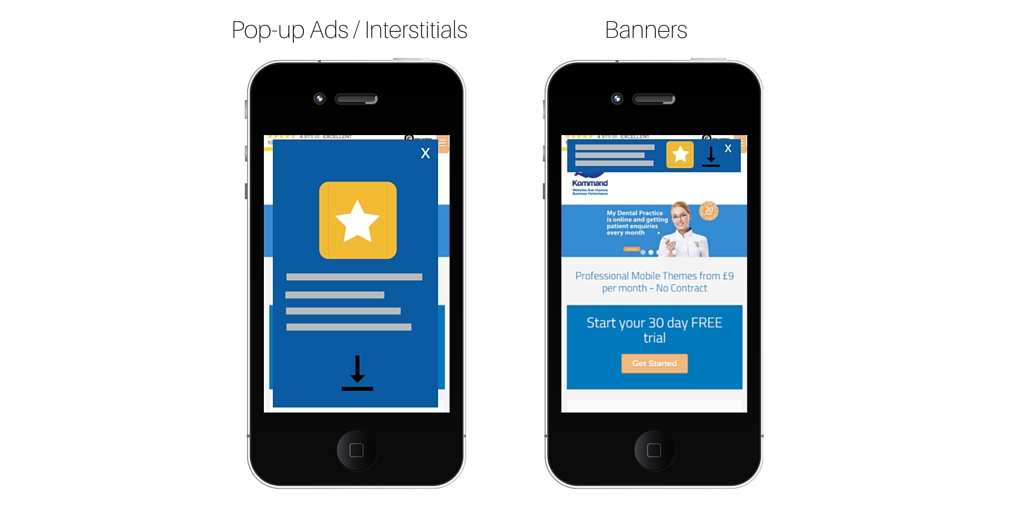Can a Mobile App Hurt Your Website's SEO?

If you run any kind of website then it will come as no surprise that you must make your web presence accessible from mobile devices. Mobile preference for online search and shopping has already overtaken desktop in many countries and is set to sustain growth as devices become better connected and software continues to develop.
Offering your customers a smooth online experience regardless of the device they are using is an important step that must be taken to increase leads and sales, remain competitive, boost your business’s reach and build brand affinity. However taking your customer’s experience onto mobile from desktop can be a confusing process.
The question that many face when optimising for online users is whether a business should opt for a mobile app as an alternative, or alongside, a mobile-friendly (responsive) or non-mobile friendly website. The decision will depend upon the varying amounts of resources from your chosen development team so it is important that you make the right decision.
For many businesses that choose to have a mobile app, one of the main ways that they can advertise it is via a pop-up (interstitial) on their website. Of course, it is possible to advertise apps through other means however if you offer visitors an app as an alternative to a mobile site then a full page interstitial is a way to direct them to use an app instead. The interstitial usually includes a link to download the business's app from an App store. The user can then access the business’s information from the app instead of a web browser. The user can of course choose to close the pop-up and continue on the webpage if they prefer.
Mobile Apps Can Hurt SEO
There are many articles detailing the positives and negatives of mobile apps vs mobile websites with contrasting answers of what is best. However the debate has taken a new turn as Google announced last week that it would begin penalizing the search rankings of websites which choose to use pop-up mobile ads to ask users to install their app.
The search giant posted an article on its Webmaster Central Blog explaining how app download pop-ups do not provide a "good search experience and can be frustrating for users because they are expecting to see the content of the web page." The article is followed by advice indicating that websites which do not cohere to these new standards will no longer be considered 'mobile-friendly' suggesting a possible drop from top spots in search engine results pages.
Why are Google Making These Changes in Mobile Requirements?
Google's primary aim has always been to provide the best user experience it can for its visitors. Internal research carried out by the organisation was used to highlight how frustrating users find pop-up app ads, especially on mobile, with 69% of their study abandoning the webpage altogether. If you consider this research in relation to your website, this could account for as many as seven out of every 10 potential customers that you could be losing before they even make it to your website.
Google’s Way or the Highway?
Whilst it is not suggested that mobile apps in themselves will affect your ranking it is suggested that the advertising of apps in full page pop-ups will. The alternative to this, suggested by Google, is non-obtrusive banner ads at the top of a webpage which allow the user to still access the information on the page:

The news from Google does not mean that having a mobile app in itself is a negative. However the release of their study findings does back continuous advice suggesting that responsive websites are the preferred design as they provide a more user- and SEO-friendly experience than non-mobile friendly websites or a mobile, m. website which requires separate URLs.
Responsive Design Websites Improve Your SEO
The question that you now face is what the best tactic to employ for your customers. A small business is likely to have limited resources and budget to spend online. App design can be great especially for large Ecommerce stores such as ASOS or Amazon. However for small businesses or CMS websites an app may be an unnecessary, expensive addition. Responsive web design can offer the balance you are looking for to remain competitive and SEO friendly on both desktop and mobile devices.
With Kommand website builder you can have a fully mobile responsive website that can rank highly on search engines for as little as £9 a month. Our easy to use software means you can bring your site to life on your own and we offer flexible bolt-ons allowing you to add the items you need to make your perfect website. Alterntively you can work with one of the Kommand web designers to design your site and logo. Whatever your requirements are we can find a solution that's right for your business. For more information on our packages, prices and design please contact us today. One of our team will be happy to discuss your website.